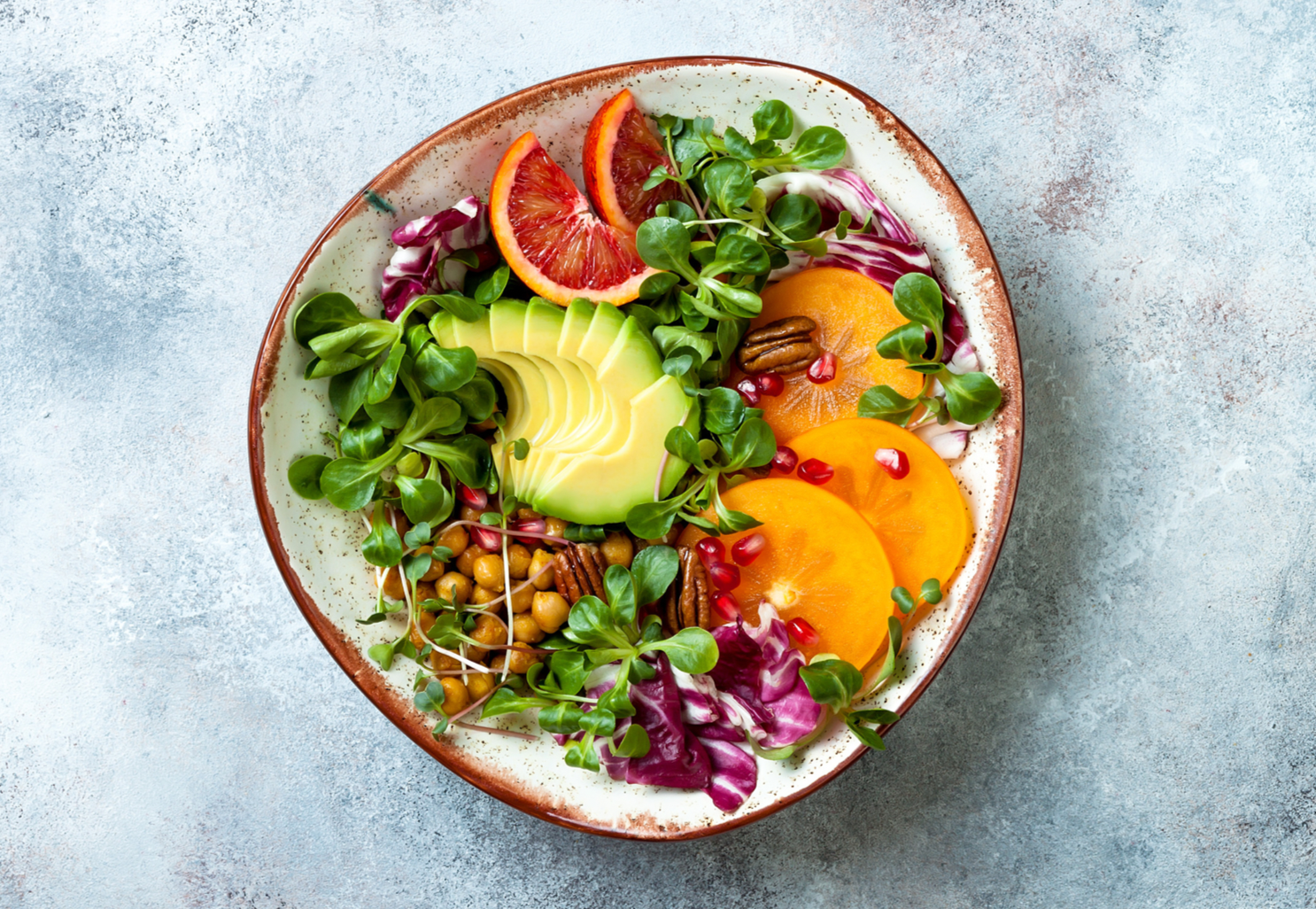Nutrition is crucial in preventing skin damage and hair loss, preserving a youthful appearance and overall wellness.
Unlike some other environmental factors that we can’t control, we can control what we eat through our behaviour. This makes preventative nutrition, or as I like to call it, “beauty nutrition”, so important.
What is beauty nutrition?
Beauty nutrition is about nutritionally dense plant-based foods, which goes very closely with a whole foods plant-based diet. It includes a wide variety of fruit, berries, dark green leafy vegetables, legumes, nuts, seeds and whole grains.
Well-planned plant-based diets are recognised for many health benefits, including the possibility of reducing the severity of chronic conditions, lower body weight, decreased risk of cancer, and reduced risk of death from ischemic heart disease.
The Global Burden of Disease Study in 2017 presented the data showing that the number 1 dietary risk factor for death was low fruit intake along with low whole-grain intake and too much sodium. This demonstrates that improved nutrition focused on a higher intake of beauty foods like fruit could profoundly impact the health outcomes of most people worldwide!
What makes beauty nutrition different?
Beauty nutrition focuses on skin health, preventing rapid skin aging and healing inflammatory skin conditions like acne, eczema and psoriasis. This could be achieved by eating an anti-inflammatory beauty diet and avoiding certain foods that promote chronic, low-level inflammation in the body.
The most common pro-inflammatory foods are sugar, dairy products, refined grains, red meat and alcohol. And foods such as fruit, veggies, beans and whole grains reduce inflammation and improve blood sugar control.
Of course, this is a very broad description, and it all comes down to one body’s ability to digest specific foods. Inflammation also affects people differently, so some may get acne from eating inflammatory foods, and some may experience inflammation-related issues in other ways.
Inflammation in the body can also promote hair loss and thin, brittle nails. Working with a nutritionist qualified in beauty nutrition could help identify the troublemakers and make the shift to a beauty diet more pleasant.
Benefits of a beauty diet:
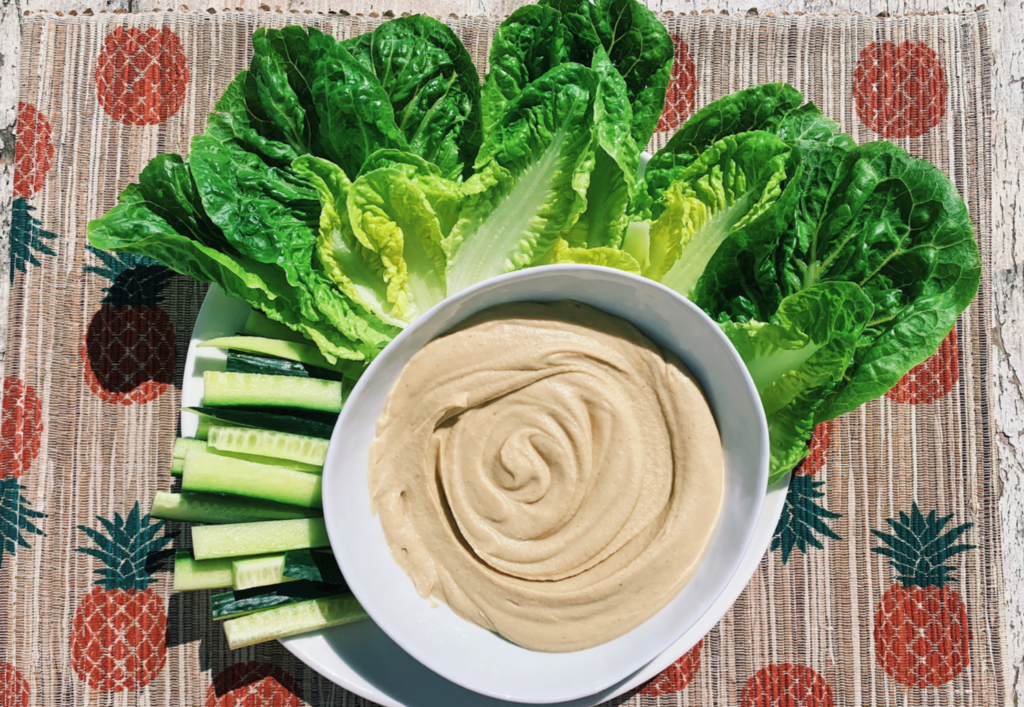
A beauty diet is rich in certain foods abundant in nutrients, fibre, and phytochemicals that can help reduce inflammation in the body, promote gut and hormone health and contribute to younger-looking skin, healthy hair and nails. Let’s look closely at the main properties of a beauty diet and beauty foods.
Low in AGEs
Advanced glycation end products (AGEs) contribute to increased oxidant stress and inflammation, which can cause collagen and elastin protein fibre to cross-link, resulting in them being non-functional. This process is called glycation. It can also decrease circulation and increase “free radical” generation when a sugar molecule bonds to a protein or lipid molecule. These adverse effects can contribute to thin saggy skin and wrinkles.
So what are these dietary influencers that cause such havoc?
Exogenous dAGEs are formed when high-fat/high-protein foods are heated. Meat is one of the worst foods for dAGE consumption, especially after being grilled, fried or roasted. About 10-30% of ingested AGEs are absorbed in the body and may participate in skin aging.
And then, there are endogenous AGEs formed in the body when the diet is high in refined carbohydrates and sugar. Prioritising beauty foods in your diet may be the most significant step in preventing protein glycation and damage to vascular cells.
So what are the beauty foods?
Beauty foods are fruit, colourful vegetables, greens and leaves, grains, nuts (in moderation), seeds and botanicals. All these delicious and nutritious foods have low AGE count even after cooking—the higher percentage of these foods in our diet, the more dramatic the results.
High in antioxidants
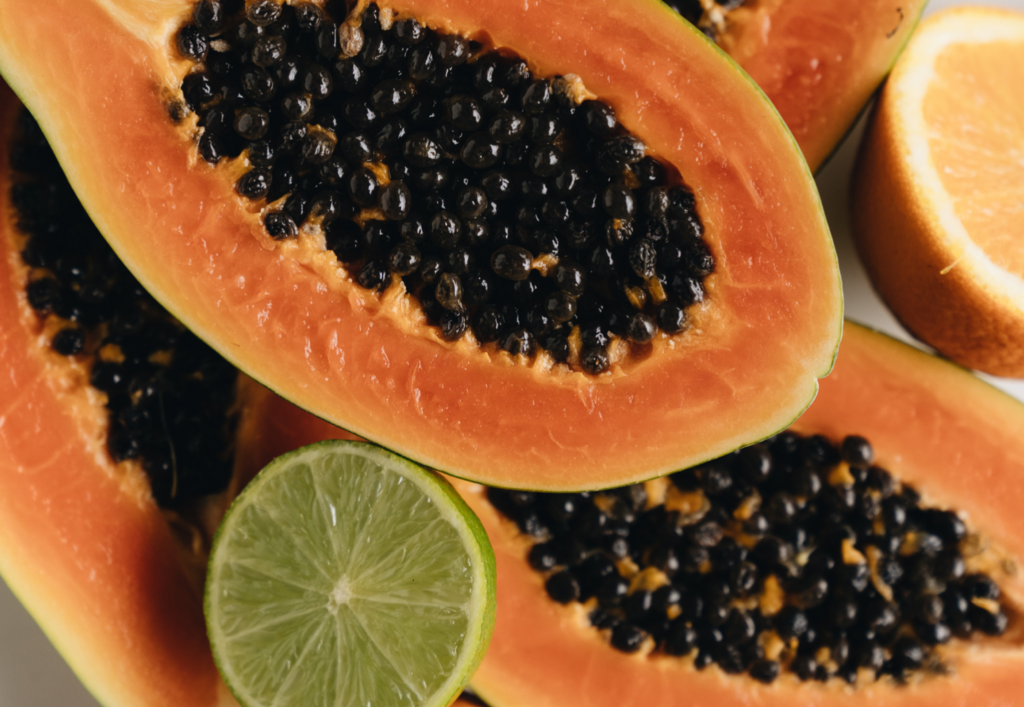
Antioxidants are compounds that may help delay or even prevent cell damage in the body. Our blood’s oxidation process can damage cell membranes and other structures such as cellular proteins, lipids and DNA. Free radicals formed by oxidative damage speed up the aging process and may increase the risk of developing many chronic illnesses and health problems.
Some researchers suggest that free radical damage to cells leads to pathological aging-related changes. Eating a diet rich in antioxidant foods helps prevent illnesses and skin damage and works as an internal skincare regime.
Antioxidants are primarily present in plant foods. We can ascertain foods we eat are high in beautifying antioxidants by using ORAC values. Top ORAC foods are spices and botanicals, followed by delicious, colourful fruit and vegetables.
For example, you can find carotenoids in yellow, orange and red vegetables and fruits and many dark green vegetables. They protect against tissue damage, enhance the immune system and have also been shown to provide the skin with a naturally tanned colour by stimulating melanin synthesis.
High in skin-loving nutrients like vitamin C and E
Beauty foods like fruits and vegetables are packed with good stuff for glowing skin. Foods like citrus fruits, berries, papaya, spinach, bell peppers, kale, kiwi, parsley and sweet potatoes are excellent sources of Vitamin C, which acts as an antioxidant and plays a vital role in collagen synthesis. It may also protect skin against sun damage and help combat dry skin. It also helps with iron absorption, which is vital for skin wound healing and overall wellness.
Many beauty foods like avocados, mangos, kiwis, collard greens and nuts and seeds are also excellent sources of Vitamin E, which has moisturising and healing effects. Vitamin C and Vitamin E act synergistically by absorbing the harmful UV light and protecting the skin against sun damage. Thanks to their antioxidant properties, Vitamin C, Vitamin E and carotenoids offer natural sun protection, working as edible sunscreen. Isn’t it fascinating?
Promotes skin hydration
Our skin has a limited capacity to get water from the outside. The primary skin cells that make up the epidermis in the skin are called keratinocytes. They produce a tough protein called keratin. It gives skin much of its resistance to physical wear and tear and makes skin waterproof.
Our skin is designed to keep water out, not to keep it in. That is why internal hydration is vital. Plant foods are rich in structured water, hydrating salts, minerals and powerful antioxidants. Structured water found in fruit and vegetables closely mimics the fluid found in our bodies; therefore, it provides the best skin hydration!
A good source of essential fatty acids
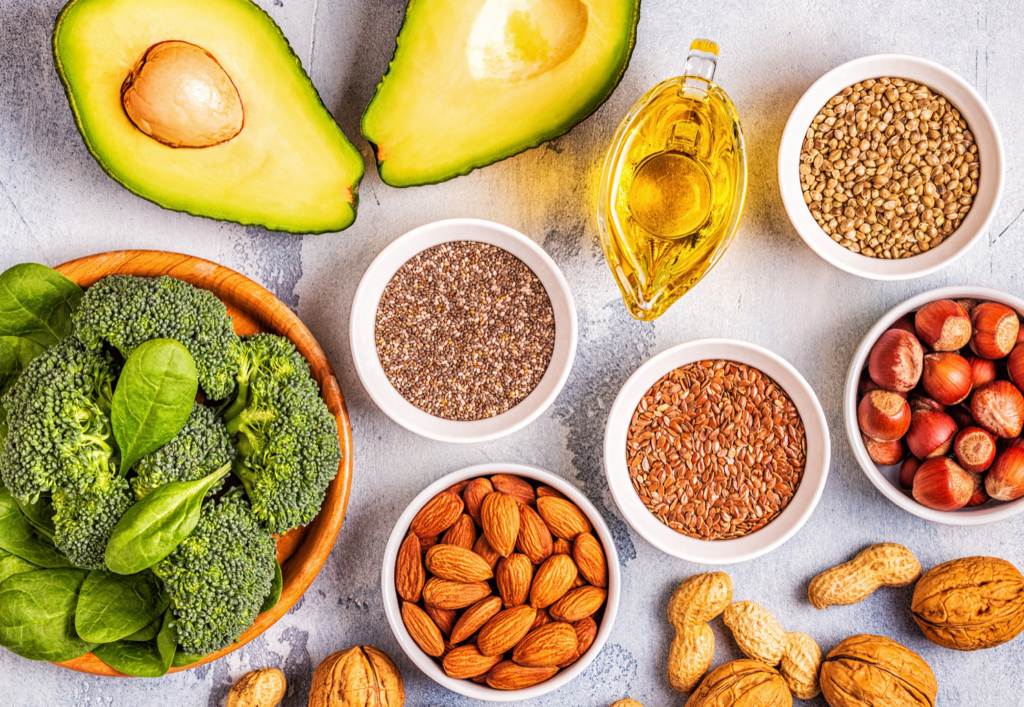
Essential fatty acids, or EFAs, play a crucial role in our health. They are vital to keep the skin healthy and play protective roles in brain, heart and hormone health.
Humans lack a specific enzyme required for producing EFAs, so we have to consume them through food. Oily fish is one of the best sources of EFAs like Omega 3 and Omega 6, but its health benefits are often compromised by the presence of high amounts of heavy metals.
Plant sources of EFAs like flaxseed, chia seeds, pumpkin seeds, seaweed, and olive oil would be a preferred source of healthy fats in a beauty diet. Omega 3 can help lessen wrinkles and improve dry skin. It can also promote hair growth and enhance nail bed health.
Can reduce the signs of aging
Another intriguing advantage of beauty nutrition is that it can influence your biological age. In the human body, there is a cap at the end of each chromosome, known as a telomere. These caps are seen as markers of health and longevity.
Progressive shortening of telomeres affects the health and lifespan of an individual, causing more apparent signs of aging. The more telomere activity, the more youthful the body appears to be.
Many lifestyle factors like depression, poor sleep and lack of exercise can shorten telomeres. The good news is that by adopting a plant-rich beauty diet, we can protect our telomeres from shrinking and even make them longer!
Beauty nutrition and dietary supplements
The presence of dietary supplements in one’s diet should be determined by how well structured their beauty diet is. A beauty nutrition practitioner could help determine the quality of the diet and if anything should be done to boost nutrient absorption naturally.
Generally, if someone chooses to follow a plant-exclusive diet, they would be advised to take B12 supplements as it’s mainly found in meat, milk, fish and eggs. B12 is also present in many fortified foods, but a nutritional supplement is usually the most reliable option.
Vitamin D is another supplement which could be considered on a plant-based diet. The bioavailable form of Vitamin D is found exclusively in animal products, and those who don’t get enough sun could greatly benefit from the supplements.
Dietary supplements also play an important role in the aging population. Older people are more likely to get B12 and Vitamin D deficiencies despite their food choices. This happens because it becomes more difficult to absorb nutrients in their natural form as we age.
My journey to healthy skin
When I was 19 years old, I got severe acne, which eventually became chronic. I tried countless acne treatments, including prescribed medication which only gave temporary relief. One day I came across the whole food plant-based diet concept, and that’s where it clicked – all this time, I was looking for answers in the wrong places.
My turning point was when I did a 28-day cleanse, eating unprocessed plant-based foods only. For 28 days, I stopped consuming animal products, coffee, alcohol, and processed foods and ate just whole fruit and veggies. In a month, I have experienced significant results in my skin’s appearance and health in general. I was getting fewer breakouts, bloating was gone, and so was brain fog. It felt like I pushed the restart button!
As time passed, I learned that a balanced plant-based diet rich in vitamins and minerals could be a great tool to treat acne. Increasing the number of foods high in fibre, antioxidants, and good fats can help regulate your hormones, support good bacteria in the gut and control breakouts.
What you eat can directly affect your face, so if you live with an imbalance of hormones and bacteria in the gut, it can lead to inflammation and acne. The best way to improve your diet and support a healthy microbiome and hormonal health is by eliminating factory-fed meat and dairy, added sugars, gluten (in some cases) and highly processed foods.
Since then, I have spent many years learning everything I could about plant-based nutrition and getting certified as a nutritionist. Because my skin was the primary reason I got into nutrition, I also completed a diploma in anti-ageing beauty nutrition and am qualified to advise and help others improve skin health and adjust their diet with skin-loving foods.
I am passionate about the whole foods plant-based diet because I have experienced all the perks first-hand. The abundance of fruit, vegetables and whole grains in my daily diet keeps my skin clean and supple while supporting my gut and hormone health.
In addition, the fascinating science behind the human genome, nutrition, aging and health shows that our food can influence our genes, which is why anti-inflammatory plant foods are necessary for us to thrive!
Then:
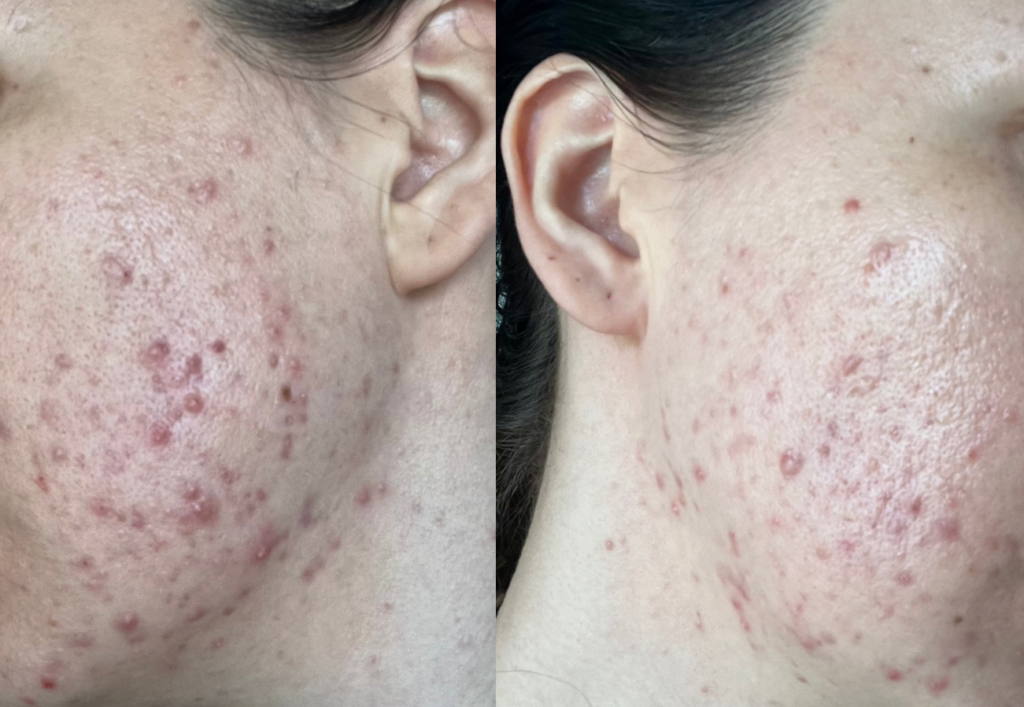
Now:
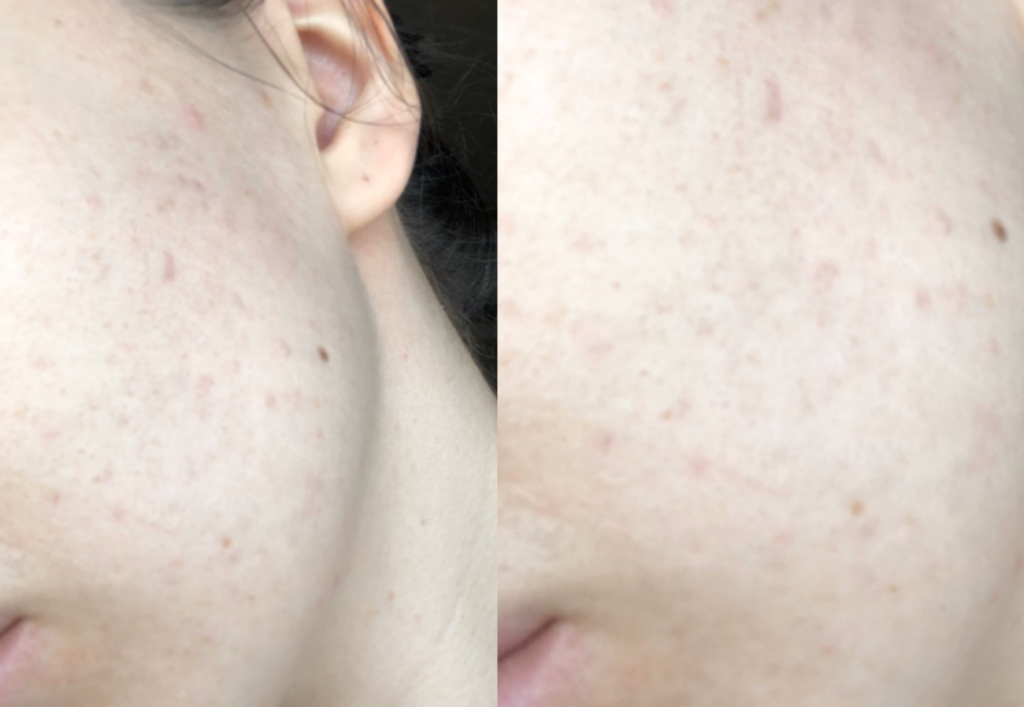
Beauty is an inside job, and beautiful skin starts in the kitchen! That is why I began beautydiets – a one-stop destination for anyone looking for guidance through the world of beauty nutrition and holistic gut, hormone and skin health.
Beauty nutrition is not about restrictions but the abundance of beautifying foods in everyday life. With my guidelines and recipes, you will learn how to adapt the most functional beauty foods to your lifestyle. I will show you how to eat your way to fabulous ageless skin!
